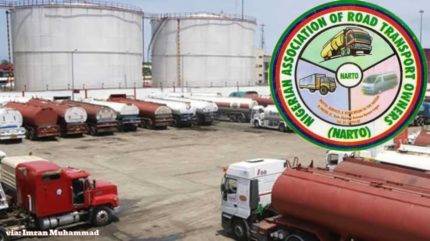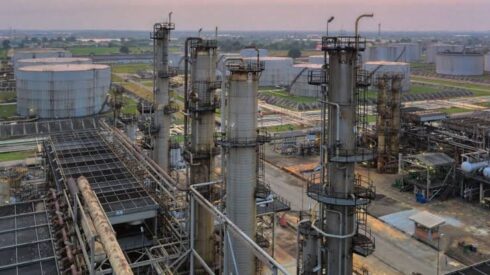Transporters Face Mounting Operational Expenses
Transportation operators in Nigeria find themselves at a crossroads as they grapple with surging operational costs, triggering concerns of an impending fuel scarcity. The Nigerian Association of Road Transport Owners (NARTO) has issued a stark warning, indicating that the industry could face a standstill as early as Monday. Alhaji Yusuf Othman, the National President of NARTO, has drawn attention to the widening gap between operational expenditures and revenue streams, underscoring the unsustainable trajectory of the current landscape. He specifically pointed to the sharp depreciation of the Nigerian currency against the dollar, combined with stagnant freight rates, as primary drivers of the financial strain, painting a grim picture for the sector’s viability.
Amidst mounting challenges, Nigerian transporters confront a looming crisis that threatens to disrupt vital supply chains and commerce nationwide. With Alhaji Yusuf Othman’s alarm bells ringing, the industry braces for potential disruptions, highlighting the urgency for concerted action to avert a fuel shortage catastrophe. As the nation grapples with economic pressures exacerbated by currency fluctuations and static freight tariffs, stakeholders must collaborate to explore sustainable solutions that ensure the resilience and continuity of Nigeria’s transportation infrastructure. Failure to address these pressing issues could have far-reaching consequences, underscoring the imperative for proactive measures to stabilize the sector and safeguard against potential disruptions in the country’s logistical network.
Transporters: Sector Faces Crisis in Abuja: Diesel Supply Disruption Looms
In a recent press release from Abuja, Alhaji Yusuf Othman has sounded the alarm regarding the looming threat of suspending truck operations unless urgent measures are taken. Othman, a prominent figure in the transportation sector, emphasized the indispensable role of diesel (AGO) in facilitating smooth operations and expressed deep concern over the escalating costs associated with fuel distribution, particularly in Lagos. He provided a detailed analysis of the financial burden borne by transporters, highlighting substantial losses incurred along both local and bridging routes. Othman’s articulate depiction of the industry’s financial challenges serves as a stark warning of potential disruptions in vital supply chains.
Alhaji Yusuf Othman’s address underscored the precarious financial situation confronting transport operators, revealing a complex web of challenges threatening the stability of the transport sector. With diesel (AGO) serving as a lifeline for truck operations, the spiraling costs of fuel distribution within Lagos pose a significant threat to the industry’s viability. Othman’s insights shed light on the ripple effects of these financial pressures, painting a picture of mounting losses and operational uncertainties that could reverberate throughout the broader economy. As stakeholders grapple with finding sustainable solutions, the urgency of addressing these issues becomes increasingly apparent to avert potential disruptions in critical supply chains.
Currency Depreciation and Unyielding Freight Rates: Transporters
Transportation in Nigeria faces a significant challenge as operational expenses continue to outpace freight rates, leading to financial strain for transporters nationwide. Alhaji Yusuf Othman, a prominent figure in the industry, has shed light on the detrimental effects of currency depreciation, highlighting the stark contrast between historical and current exchange rates. This discrepancy has contributed to the stagnation of freight rates, further exacerbating the financial burdens on transport operators who struggle to cover their rising operational costs.
The widening gap between expenses and revenues in the transport sector underscores the urgent need for intervention to restore economic viability. As Alhaji Yusuf Othman emphasized, concerted efforts are required to address this disparity and implement measures that promote sustainability within the industry. Failure to take action risks further destabilizing an already precarious transportation ecosystem, emphasizing the importance of prioritizing solutions to bridge the growing economic divide.
Transporters Associations Urge Government Intervention Amid Operational Challenges
In the heart of Nigeria’s bustling transportation sector, mounting operational challenges are setting off alarm bells within transport associations. Led by prominent figure Alhaji Yusuf Othman, stakeholders are urgently urging government intervention to avert an impending crisis. Othman’s impassioned plea underscores the pressing need for policymakers to reassess freight rates amidst a backdrop of soaring operational expenses for transport operators. However, his call transcends mere rate adjustments, emphasizing the necessity for a holistic approach that tackles the root causes driving financial strain across the industry.
Alhaji Yusuf Othman’s clarion call for government action highlights the intricate web of challenges facing Nigeria’s transportation landscape. As operational costs continue to spiral upwards, transport operators find themselves grappling with a precarious financial burden. Othman’s advocacy for a comprehensive strategy underscores the imperative for policymakers to delve deeper, addressing the systemic issues exacerbating the industry’s woes. Only through concerted efforts to tackle underlying factors can Nigeria’s transportation sector hope to navigate its current turbulence and chart a course towards sustainable resilience.
Advocating for Holistic Solutions to Sustain Nigeria’s Transportation Infrastructure
In his impassioned plea, Othman sheds light on the intricate web of challenges confronting transport operators in Nigeria, stressing the urgent need for comprehensive measures to address the volatile exchange rates and surging fuel costs. Through his articulate discourse, Othman emphasizes the interconnectedness of these issues and advocates for a holistic approach aimed at stabilizing the exchange rate and mitigating the adverse effects of escalating fuel prices. By championing this multifaceted strategy, Othman underscores the imperative of safeguarding Nigeria’s transportation infrastructure from future disruptions, highlighting the importance of proactive government intervention to ensure the sector’s resilience in the face of adversity.
Furthermore, Othman’s appeal resonates with the broader narrative of sustainable development, as he underscores the significance of not only tackling immediate challenges but also implementing enduring solutions to fortify the nation’s transport network for generations to come. Through his eloquent argumentation, Othman positions government intervention as a linchpin in fostering the long-term viability of Nigeria’s transportation sector, emphasizing the crucial role of policymakers in steering the country towards a future marked by stability, efficiency, and resilience. In essence, Othman’s plea serves as a clarion call for concerted action, urging stakeholders to unite in pursuit of a holistic vision that ensures the vitality and sustainability of Nigeria’s transportation infrastructure.
The Impact of Potential Transporters; Truck Operation Suspension
The looming threat of a suspension in truck operations casts a shadow over diverse sectors, igniting concerns about broader economic repercussions. With the transport industry serving as a vital artery for commerce and trade, any disruption in truck operations could trigger significant ripple effects. Such disruptions have the potential to disrupt supply chains, leading to scarcities and inflationary pressures on essential goods. Given the critical role of trucking in the national economy, stakeholders are vigilant, underscoring the imperative for swift action to mitigate challenges and avert a domino effect on economic stability.
Amidst escalating operational costs, the road ahead for transporters remains shrouded in uncertainty. Alhaji Yusuf Othman’s dire warning serves as a poignant reminder of the pressing need to find sustainable solutions to alleviate financial burdens on transport operators. Collaborative efforts between the government and industry stakeholders emerge as a beacon of hope in restoring equilibrium and fortifying Nigeria’s transportation sector. As decision-makers deliberate on strategies, the fate of truck operations hangs precariously, exerting profound ramifications on the nation’s economic landscape and the intricate web of supply chain dynamics.
Table of Contents
Discover more from OGM News NG
Subscribe to get the latest posts sent to your email.













